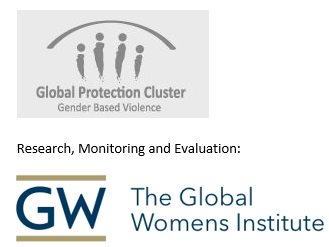- The IASC GBV Guidelines outline actions that apply to organizations implementing health programs in the early stages of an emergency, and specify the importance of appointing GBV focal points from the health sector to participate in GBV coordination. Key actions related to ensuring access to basic health services are extremely relevant for GBV staff, which should work closely with health actors and should support the establishment of services and any related advocacy. These actions are:
- Implement the MISP.
- Conduct or participate in rapid situational analyses of health services. This should address the accessibility, availability and capacity of health services to respond to the needs of women and girls. (See assessment section.)
- Ensure health services are available to all women and girls, including LBT women, women and girls with disabilities, and other marginalized women and girls. This means ensuring appropriate access points for adult, adolescent and child survivors; and providing access to same-sex, same-language health workers, as outlined in the MISP.
- Motivate and support staff. This includes ensuring that health staff has access to appropriate technical and material resources.
- Involve and inform the community. This means involving women in decision-making, and making the community – both women and men – aware of available services and the negative consequences of GBV.
- Establish an agreed-upon protocol for care for survivors of sexual violence, and ensure that all health care providers are trained in the use of the protocol. GBV staff can advocate for quality services, in line with established protocols; and promote and support training for medical personnel (Excerpted from IRC, 2012).
Overview
Last edited: August 14, 2013
